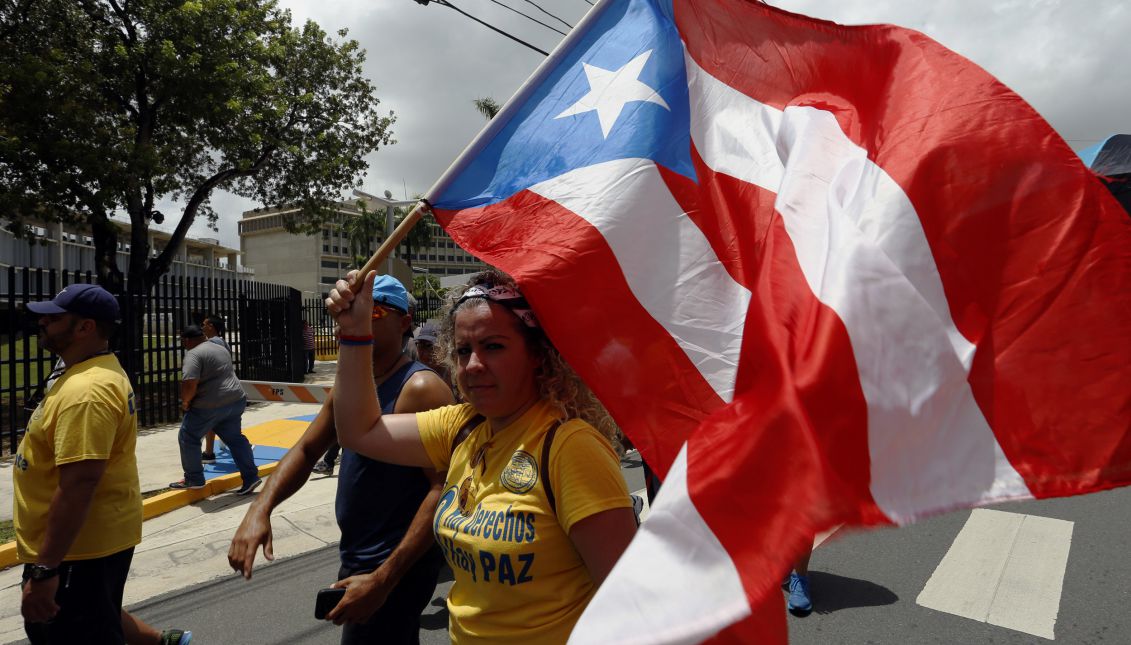
Puerto Rico unions protest pay cut for public employees
Puerto Rico's major unions mounted a protest here Wednesday against the demand from the federally appointed board overseeing the finances of this US commonwealth that public employees work two fewer days per month with a corresponding reduction in pay.
Participants marched down various streets in Hato Rey, San Juan's financial district, converging in front of the offices of the Fiscal Oversight Board, known by the Spanish initials JSF.
The JSF announced earlier this week that it would take Puerto Rico Gov. Ricky Rossello to court over his rejection of the proposal for public employee pay cuts.
Organizers said that several thousand people took part in Wednesday's demonstration, which unfolded without any of the violence that marked a May Day mobilization against the austerity policies imposed on debt-laden Puerto Rico by the JSF.
Shrinking the paychecks of state employees will have a negative impact on the Puerto Rican economy, labor spokesman Luis Pedraza Leduc told EFE.
Taking money out of the economy is the last thing Puerto Rico needs after more than a decade of recession, he said.
"The salary reduction will lead government employees to reduce their spending, which in turn hurts the companies that serve them, such as the places where they buy lunch," Pedraza Leduc said.
CONTENIDO RELACIONADO
He said that Wednesday's protest was also directed against a JSF proposal that threatens the future pension benefits of some 300,000 public employees.
The event concluded with a speech by the leader of the Utier electrical workers union, Jaime Figueroa Jaramillo, who said that Puerto Rico could not accept the dictates of the Washington-imposed JSF.
Utier has called a 24-hour strike against what it says is the JSF's intention to privatize AEE, the heavily indebted state-owned electric utility.
The JSF was established under the Puerto Rico Oversight, Management and Economic Stability Act (Promesa), signed into law in June 2016 by then-President Barack Obama.
Puerto Rico, whose government owes more than $70 billion in bond debt, also has nearly $50 billion in pension liabilities as a consequence of the long recession.
It also has suffered a massive exodus of its working-age population, who as US citizens can freely relocate to the mainland.










DEJE UN COMENTARIO: